The Yak goes one on one with Richard Gregory, an essential moving part of Prototype, a new integrated Fashion Services Company. They take the headache out of all things fashion!!
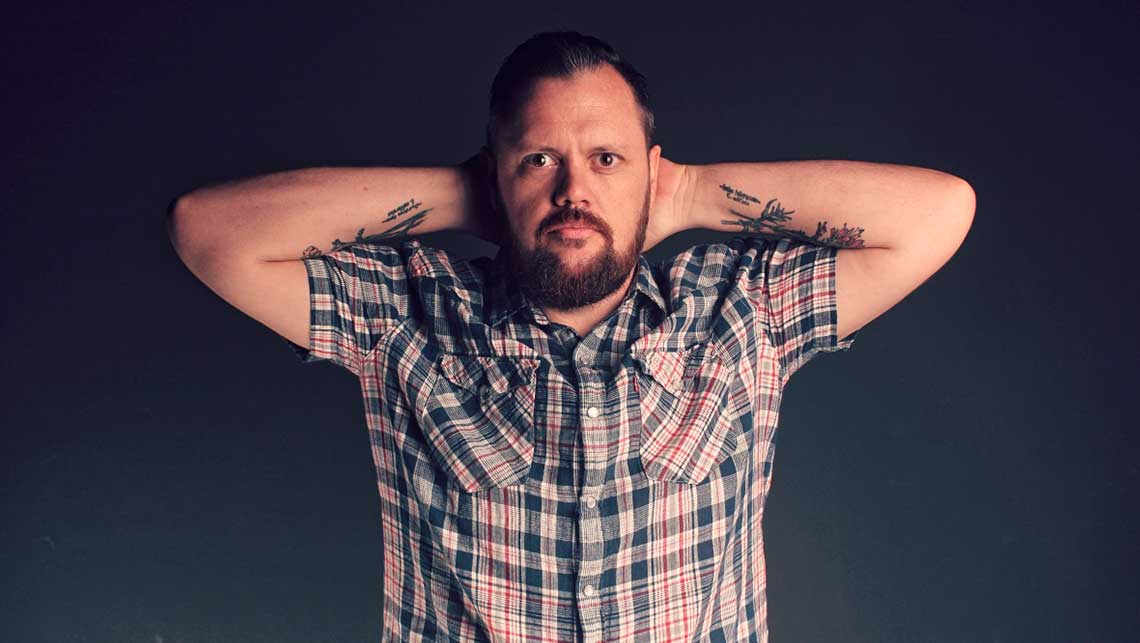
Richard, can you give me a brief background as to why you, as a guy, are in fashion?
Hey! What’s that supposed to mean? 😛 There’s lots of fashion guys out there, but in my case, your point is valid. I’m not exactly known as a fashion maven. Actually, I got my start in architecture. I got my Architecture degree in San Francisco, then worked in architecture in the Napa Valley for many years before moving to Bali.
My interest in fashion has its roots in the same world as architecture. In fact, I started Prototype for the specific purpose of bringing some of that project management and architectural documentation know-how to the fashion space. After spending a couple of years helping my wife launch her fashion brand, I realized that there was a huge piece missing from the fashion industry. I think coming from architecture was what gave me the insight that a lot of experienced fashion professionals were missing.
It’s not the most glamorous part of the fashion industry, to be sure, but in my opinion it’s the most critical.
Is it true you moved to Bali because you read a Yak magazine? What other influences convinced you to move here, and how long ago was that?
Wow, I’m not sure where you dug that up from, but yes, in fact the Yak magazine played a huge role in our moving to Bali. That was in 2004, I believe. Early days for the Yak!
My wife and I really connected with Bali and really wanted to live here. But as designers, we just weren’t sure we were ready to leave the more cosmopolitan vibes of California for a tropical island and the simple life. It seemed like maybe our careers would have to be placed on hold. The Yak showed us that moving to Bali would NOT be a sacrifice to our careers. Far from it, as things turned out!
We thought, if this island can produce a mag like this, then there’s got to be a wealth of creativity on the island, and we just wanted to move to Bali and soak it all up.
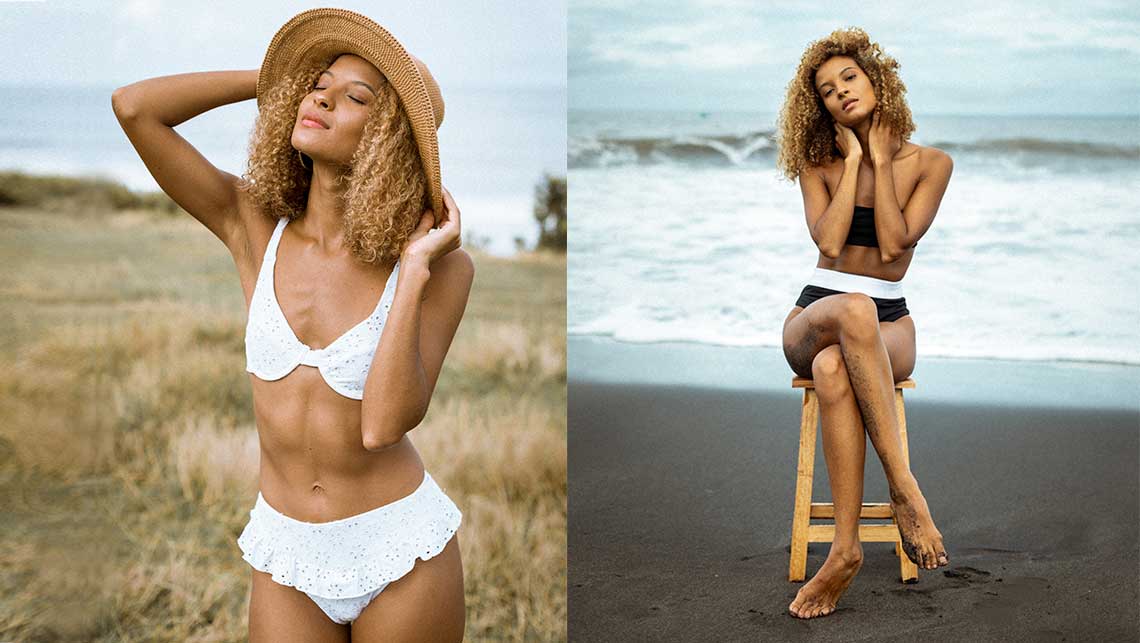
Let’s talk Prototype. I gather you are modernizing this dinosaur of an industry? How?
Yes, we’re certainly trying. The fashion industry, from the supply side, is old and relatively undisturbed by modernization and technology. Sure, the factories are using new machines to crank out more product, faster. But those are only the biggest players, mostly in China, and mostly in the fast fashion space.
The rest of the industry is still plodding along, almost opaque to the newcomer. The methods of communication, documentation and standardization are just unbelievably rough. Language and cultural barriers make the communication unreliable. All in all, it moves far too slowly and requires a tremendous amount of time and resources to launch new products. Making it nearly impossible for small businesses to compete in a meaningful way with large fashion companies.
We stand in the middle between buyers and suppliers, providing resources and structure that most SMB brands just don’t have access to. Conversely, our system also performs a great service for suppliers by providing them with a consistent workflow, format and communication that allows them to keep their costs low and avoid the headaches that come with constantly revolving supply of clients from all over the world. It takes a lot of time and effort to learn about each new client, their culture and communication style. We spare the clothing manufacturers from ever having to deal personally with new clients.
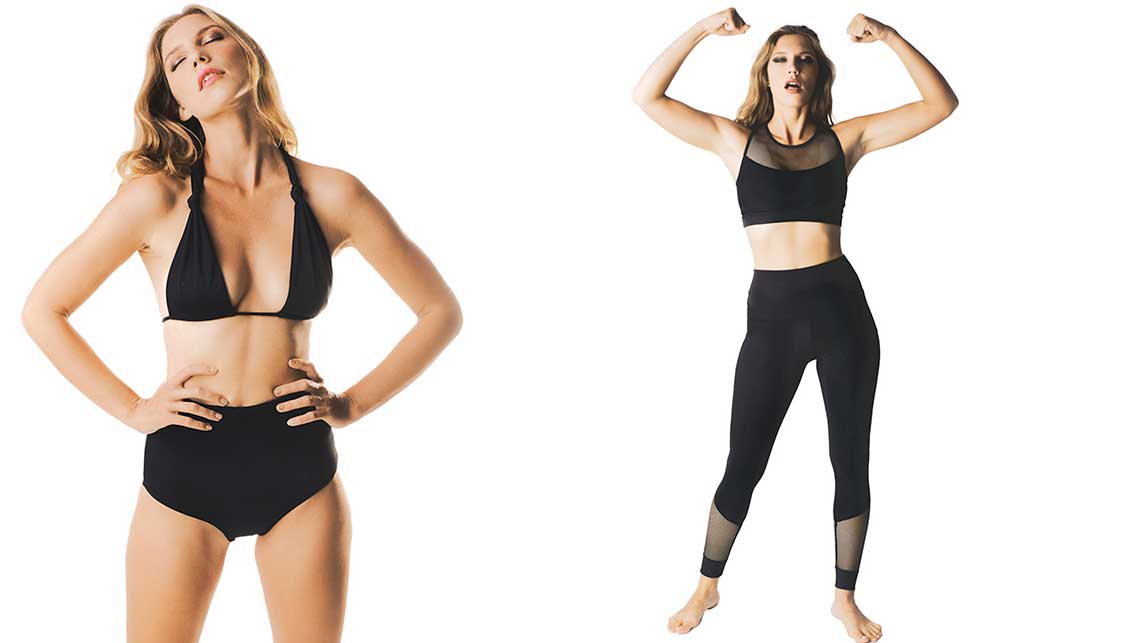
Would you say that Prototype’s forte is in helping start-up fashion labels? What wrinkles does Prototype iron out for those wishing to enter this highly competitive market?
Yes, truthfully, that’s our unique value proposition. We work with hundreds of startups, many of them without any experience whatsoever in the industry. Working with us, they have access to services, tools and resources that small fashion brands rarely have access to.
Essentially, what we do is, rather than a handful of very large clients, we pool the needs of many dozens of small clients. This allows us to achieve a certain economy of scale that wouldn’t be possible for a client on their own.
This allows for a higher quality of product and service, and, importantly, a sustainable long-term supply chain.
So, would you say that Prototype does give a new label an edge on the competition?
Certainly. It allows fashion labels to focus their efforts on selling the products, rather than constantly being concerned about the quality and consistency of the supply. More fashion brands fail due to the logistics of running the brand, rather than failing to sell the products or failing to appeal to their customers.
It depends of course on what strengths and weaknesses the founders are bringing to the table, but we try our best to meet them where they’re at and fill in the gaps. That makes us a one-stop resource for pretty much anything they might be lacking.
I imagine this comes at great cost to the start-up brand?
It’s not as cheap as doing it yourself, but the truth is that NOBODY can do everything themselves and do it all well. Time is money too, however, and if you take too long to launch your brand, chances are it won’t happen. So, we deal mostly with brands that are serious about their intentions and have budgets to match.
I will say, however, that it’s probably not as expensive as you’d think. Many of our services start under $500 USD.

You are Founder and CEO of the company. But I also read that you are a women-led company – how does that work?
Yes, most of the staff and management are women. We have around 29 staff now and more than 2/3rds are women. While I might have gotten the ball rolling, it’s almost entirely women that keep things going! Everyone knows the CEO doesn’t do anything useful anyway. LOL.
Other descriptions of Prototype are: Ethical, inclusive, family-owned and giving back. Can you enlighten us a bit on each within the Prototype CSR?
These are actually all criteria that we use to select and score our partner suppliers. All of our suppliers and partners are “Certified by Prototype”, but some of them who qualify are given the opportunity to earn additional badges, such as “Ethical”, “Inclusive”, “Family-Owned” and “Giving Back”. Each has their own unique set of criteria and we encourage each of our suppliers to strive to earn these badges.
I gather you are designing your own software. Is this something you care to discuss? (Or is it top secret?
Yes! It’s a really exciting development. We’ve had such a poor experience with nearly every single project management software on the market that we’ve embarked on developing our own. It’s still a work in progress, but we should be ready to lauch within just a few more months. Our platform will be a comprehensive, easy to use, way for clients to track the progress of their projects and keep track of change orders. I WISH we had this when we started!
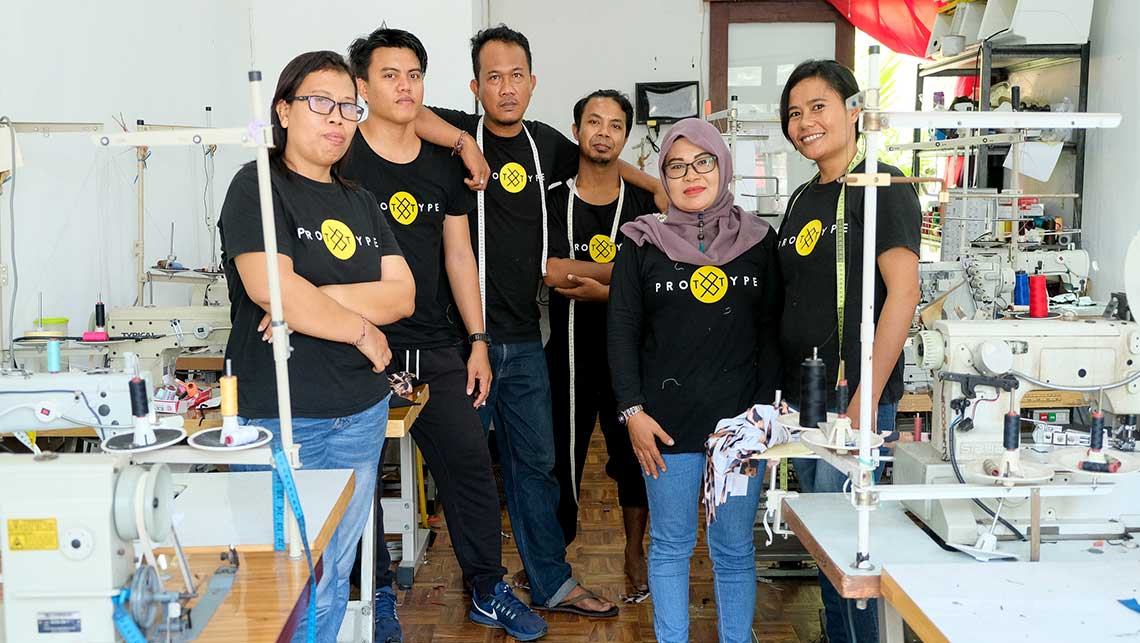
Am I right in thinking you are also on track to create virtual fashion? For me to wear in my Metaverse space? An outfit that might even match what I have in my closet – kreyzeeee!
Yes, absolutely! We now are running most of our projects through a digital workflow, which allows us to first model and do the early fitting in 3D. Then…. It gets interesting! We can use these 3D models to generate NFTs that can be used and worn in the Metaverse.
Like you said, this opens up some really interesting possibilities for the future of digital spaces. You could potentially buy a skirt in a shop and get a digital version as a bonus. Or vice versa. It’s a really fascinating time to be in fashion. Young brands are not going to want to miss out on these opportunities.
I see you boast #1 best T-shirt printing in Bali. Any other boasts you care to share within the fashion industry? (You’re more than just T-shirts surely!)
Actually, few of our clients are Bali-based, most are just passing through. So we don’t really focus our marketing efforts here. But, we know the need for quality t-shirts is great in Bali and the printing services here can be pretty inconsistent, so that’s a little niche that we like to offer here.
We work with almost all types of clothing, fabrics, & techniques. If it’s too technical, it goes to locations outside Bali. We’re actually known for lingerie, that’s our unique speciality, but lingerie can be TOUGH. We’d rather do sarongs and towels, haha! Send us all the sarong and towel clients you can!
Any boasts in your private life you’d also care to share? Can’t think of anything at the moment! 😛
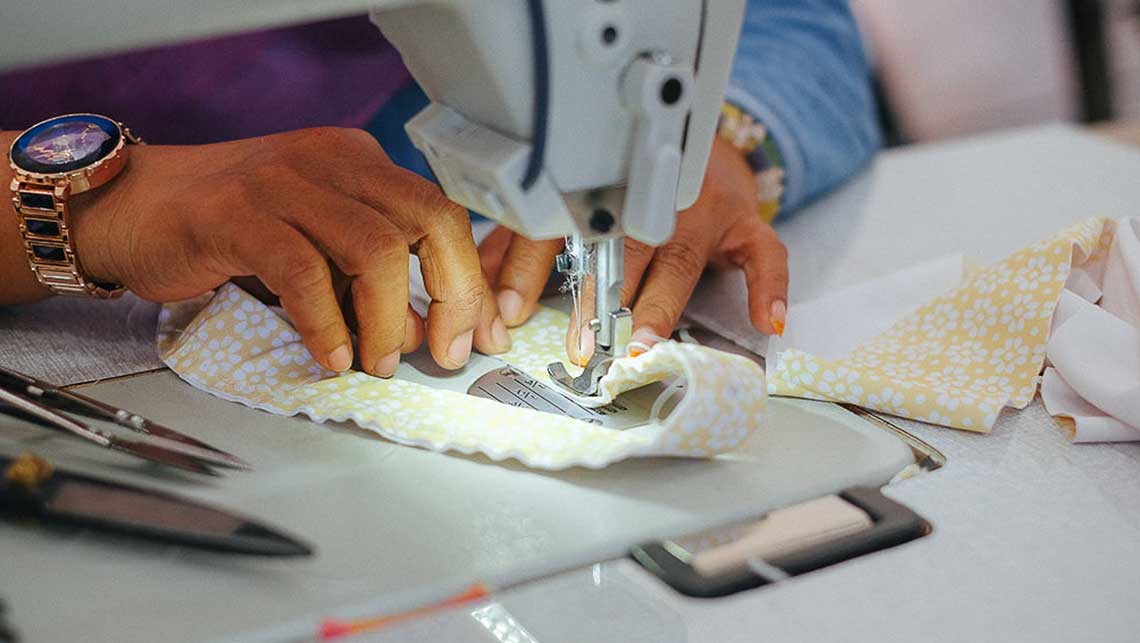
More than just a sourcing agency, Prototype hand-holds designers throughout which processes? I mean what makes you stand out from the crowd?
What makes us stand out is that we’re offering full-service solutions for a wider range of needs than any other company out there. This is important because every fashion brand has an entirely different set of needs. As a business owner, it’s frustrating to have to find, vet and hire multiple agencies to help you with all different sorts of needs. We handle everything from helping name your brand, to graphics, to marketing, patterning, manufacturing, the whole nine yards!
Unlike most companies, we offer fully-custom product development services, private label and white label products, all under one roof.
Best of all, we do it all with the highest standards and reasonable pricing. Our location in Bali allows us to offer what we call “American quality, import price”. It’s all a pretty awesome combo for our clients and they love us for it.

And lastly, Richard, if you had a magic wand what would you change in the fashion industry?
Honestly, here’s the thing I hate about the fashion industry: the vast majority of fashion brands fail spectacularly within a short period of time. I don’t have the statistics, but even I would be shocked at the actual numbers.
I love supporting people with their dreams. That’s the whole point. And I hate seeing dreams die, especially when I feel like I could help or things could be different.
So, what I would love to see is for there to be far more comprehensive education both in and out of schools that helps young entrepreneurs better understand the fashion industry and the challenges that they will face. It’s a brutally competitive industry and it’s not easy to learn on the job. If founders had more exposure to the realities ahead of time, they would be better positioned for success.
And in the world?
For the world, I’ll say the same thing. Most schooling is esoteric compared with the everyday challenges people face in their everyday personal and professional lives. It’s silly, it’s upside-down. The vast majority of people have little to no exposure to the basic financial principles they’ll need in order to thrive as an independent business owner. A curriculum similar to an MBA should be standard for all students at the high school level, empowering them to succeed in their own small businesses.
EVERYONE would benefit and small businesses are healthy for our economies, our communities and our world!
Thank you for your time, and I’m now thinking that that brand I ideated about 20 years ago might just make it off the drawing board!!
IG: @prototype.fashion
FB: Prototype Global
































